Getting a Mortgage While Active in a Chapter 13 Bankruptcy: A Detailed Guide
Filing for bankruptcy is often seen as a last resort for individuals facing insurmountable debt, and while it can provide a fresh financial start, it also comes with significant challenges. For those in a Chapter 13 bankruptcy—a reorganization bankruptcy that allows you to repay a portion of your debts over time—getting a mortgage can feel nearly impossible. However, it is not only possible but also attainable under certain conditions. Understanding how to navigate the complexities of buying a home or refinancing while actively in a Chapter 13 bankruptcy can help you reach your goal of homeownership or securing better mortgage terms.
In this article, we will explore the process, requirements, and options for obtaining a mortgage while in a Chapter 13 bankruptcy, covering the following key areas:
- What is Chapter 13 Bankruptcy?
- The Effect of Chapter 13 Bankruptcy on Your Credit and Mortgage Eligibility
- Can You Get a Mortgage While in Chapter 13 Bankruptcy?
- Key Requirements for Getting a Mortgage During Chapter 13
- Options for Obtaining a Mortgage During Chapter 13 Bankruptcy
- How to Improve Your Chances of Getting Approved
- Benefits and Challenges of Getting a Mortgage During Chapter 13 Bankruptcy
What Is Chapter 13 Bankruptcy?
Chapter 13 bankruptcy, often referred to as a wage earner’s plan, allows individuals with a regular income to reorganize their debts and establish a repayment plan. Under this arrangement, the filer typically repays a portion of their debts over 3-5 years, after which any remaining eligible unsecured debt (such as credit card debt or medical bills) is discharged.
Unlike Chapter 7 bankruptcy, which involves the liquidation of assets, Chapter 13 allows the individual to keep their property, including their home, as long as they remain in compliance with the repayment plan. This makes it a preferred option for homeowners who want to prevent foreclosure while repaying debts in a structured way.
The Effect of Chapter 13 Bankruptcy on Your Credit and Mortgage Eligibility
Filing for Chapter 13 bankruptcy significantly impacts your credit score, which is a crucial factor in mortgage approval. A Chapter 13 bankruptcy remains on your credit report for 7 years from the filing date, and during this time, it can make it difficult to qualify for new credit, including a mortgage. That being said, Chapter 13 offers certain advantages in terms of mortgage eligibility:
- Less Severe Impact than Chapter 7: While Chapter 7 bankruptcy often involves the liquidation of assets and the discharge of most debts, Chapter 13 allows you to keep your property, including your home. As a result, your mortgage may remain active throughout the process, and your lender may be more inclined to work with you.
- Debt Repayment Plan: Since you are repaying some of your debt over a period of time under Chapter 13, it demonstrates your commitment to managing your financial obligations. This may help lenders view you as a less risky borrower compared to those who have gone through Chapter 7 or who have not filed bankruptcy at all but have poor credit histories.
- Improved Credit: Over time, the repayment of your Chapter 13 plan can help improve your credit score, as long as you are making timely payments. This can increase your chances of qualifying for a mortgage once your credit begins to recover.
Can You Get a Mortgage While in Chapter 13 Bankruptcy?
Yes, it is possible to get a mortgage while in an active Chapter 13 bankruptcy, but it comes with specific conditions and requirements. The key challenge lies in demonstrating to the lender that you have the ability to repay the mortgage while fulfilling your Chapter 13 repayment plan.
However, it’s important to recognize that you will face some limitations. Mortgage lenders typically view an active Chapter 13 bankruptcy as a risk factor. They may be concerned about your ability to meet both your repayment obligations to creditors under the bankruptcy and your new mortgage payments. But, if you can show financial stability, consistent income, and a commitment to repaying your debts, a mortgage approval is possible.
Key Requirements for Getting a Mortgage During Chapter 13
Lenders have strict requirements when it comes to issuing mortgages during an active Chapter 13 bankruptcy. These requirements often include:
- Successful Completion of at Least 12 Months of the Chapter 13 Plan: Most lenders require that you have made at least 12 months of timely payments under your Chapter 13 bankruptcy plan before considering you for a mortgage. This shows that you are financially responsible and committed to your debt repayment plan.
- Court Approval: For many loan programs, you must get permission from the bankruptcy court before taking on new debt, such as a mortgage. The court will review your case to ensure that taking on a new mortgage won’t negatively impact your ability to meet the terms of your Chapter 13 repayment plan. The court’s approval is a crucial step in obtaining a mortgage while in bankruptcy.
- Demonstrating a Stable Income: Lenders will want to see a consistent and reliable income to ensure that you can make both your mortgage payments and the ongoing payments required under your Chapter 13 plan. Your income needs to be sufficient to support both obligations.
- Debt-to-Income (DTI) Ratio: Lenders will closely examine your Debt-to-Income ratio—the proportion of your monthly income that goes toward paying debts, including your Chapter 13 payments. Most lenders prefer that your DTI ratio, including your Chapter 13 payment, does not exceed 43%, though some may allow slightly higher ratios, depending on other factors.
- Good Standing with Bankruptcy Trustee: You must be current on your Chapter 13 payments to the bankruptcy trustee. Missing payments or being in arrears can significantly hurt your chances of getting approved for a mortgage during bankruptcy.
- Credit Score Requirements: While the exact minimum credit score varies by lender and loan program, it is common for lenders to require a minimum score of 620-640. However, for VA or FHA loans, a slightly lower score may be acceptable.
- Down Payment: While a Chapter 13 bankruptcy may make it more difficult to qualify for a mortgage, many programs allow for low or no down payments. For example, FHA loans often require just a 3.5% down payment, and VA loans for veterans can allow for no down payment. However, depending on your credit history and the lender’s requirements, you may need to save for a down payment.
Options for Obtaining a Mortgage During Chapter 13 Bankruptcy
There are several mortgage options available for individuals in a Chapter 13 bankruptcy, though each program has its own specific requirements and restrictions:
1. FHA Loans
Federal Housing Administration (FHA) loans are a popular choice for those with less-than-perfect credit or financial histories. The FHA does not have a specific minimum credit score requirement, but most lenders require a score of 500 for approval.
- Down Payment: As low as 3.5% of the home’s purchase price.
- Chapter 13 Eligibility: FHA guidelines allow individuals to apply for a loan during a Chapter 13 bankruptcy after making at least 12 months of on-time payments under the bankruptcy plan. You also need court approval.
2. VA Loans
Veterans Affairs (VA) loans are another favorable option for active duty service members, veterans, and qualifying spouses. These loans offer the benefit of no down payment and competitive interest rates.
Chapter 13 Eligibility: Like FHA loans, VA loans require that you have made 12 months of on-time payments in your Chapter 13 plan. You must also have court approval to take on a new mortgage.
3. Conventional Loans
While conventional loans (those not backed by the government) are more challenging to obtain during Chapter 13 bankruptcy, they are still an option for some borrowers. These loans typically have stricter requirements, including higher credit score thresholds (usually 640 or higher).
- Down Payment: Typically requires a 5-20% down payment.
- Chapter 13 Eligibility: Conventional loan lenders typically require 12-24 months of on-time payments in Chapter 13 before considering a borrower for a loan.
4. USDA Loans
If you’re looking to purchase a home in a rural area, a USDA loan might be a viable option. These loans are designed to promote homeownership in rural and suburban areas and offer no down payment.
Chapter 13 Eligibility: USDA loan eligibility during Chapter 13 is similar to FHA and VA loans: after making 12 months of on-time payments in your bankruptcy plan, and with court approval, you may qualify.
How to Improve Your Chances of Getting Approved
While getting a mortgage during an active Chapter 13 bankruptcy can be more challenging, there are steps you can take to improve your chances:
- Stay Current on Your Bankruptcy Payments: The most important step is to stay current on your Chapter 13 payments. Missing payments will not only jeopardize your ability to qualify for a mortgage but may also lead to your case being dismissed.
- Save for a Larger Down Payment: A larger down payment can offset some of the risks that lenders associate with borrowers in Chapter 13 bankruptcy. A down payment of 5-20% can make your application more appealing.
- Get Pre-Approval from the Court: If you’re seriously considering purchasing a home while in Chapter 13 bankruptcy, contact your bankruptcy trustee to ensure that you can get approval from the court for a new mortgage. This will be necessary to proceed with the application.
- Maintain a Stable Income: Lenders will want to see that you have stable and sufficient income to cover both your existing obligations and a new mortgage.

